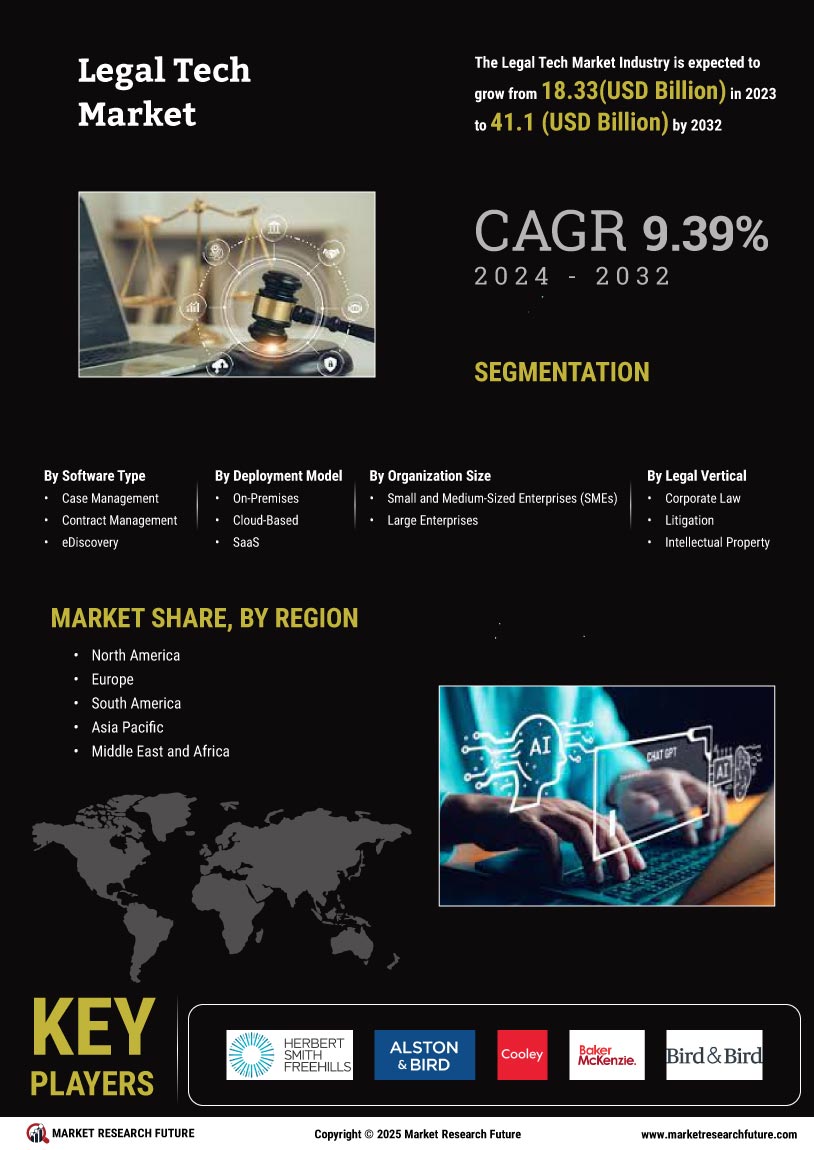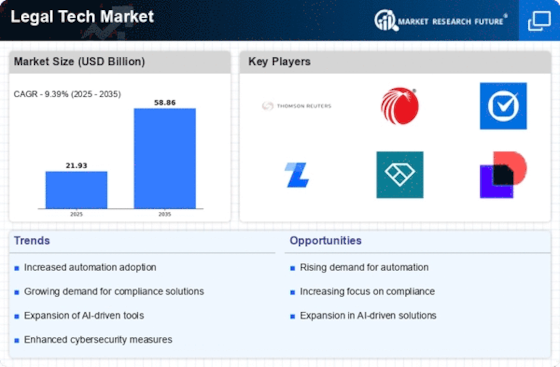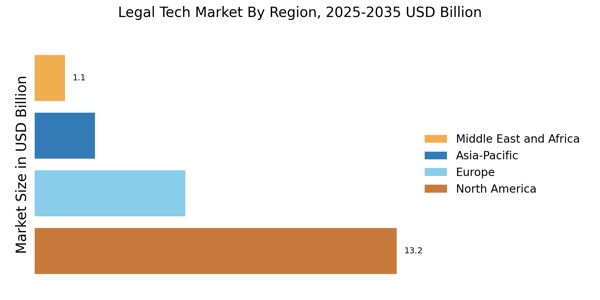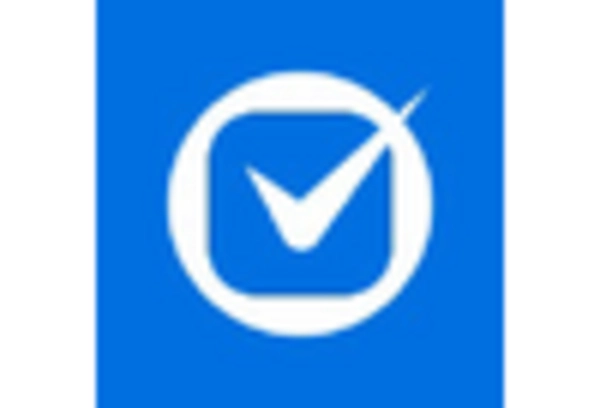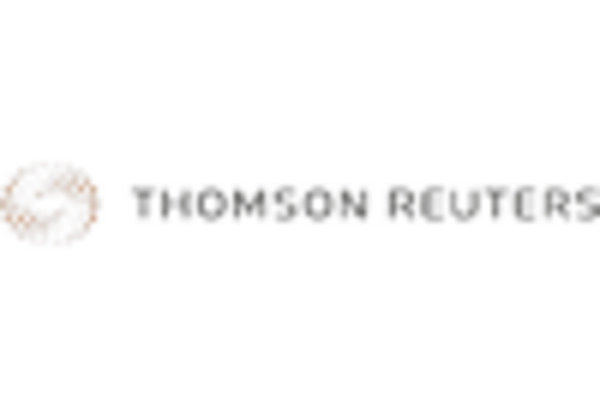Rise of Remote Work Solutions
The shift towards remote work has significantly impacted the Legal Tech Market, prompting a demand for solutions that facilitate collaboration and communication among legal teams. As firms adapt to flexible work arrangements, tools that support virtual meetings, document sharing, and project management are becoming indispensable. The market for remote work solutions in the legal sector is anticipated to grow by around 14% annually. This growth indicates a broader acceptance of technology in legal practices, enabling firms to maintain productivity and client engagement regardless of physical location. Consequently, the Legal Tech Market is likely to continue evolving to meet the needs of a distributed workforce.
Integration of Advanced Analytics
The integration of advanced analytics into the Legal Tech Market is reshaping how legal professionals approach case management and decision-making. By leveraging data analytics, firms can gain insights into case outcomes, client behavior, and market trends. This analytical capability is becoming increasingly vital, as it allows legal practitioners to make informed decisions based on empirical evidence rather than intuition. The analytics segment within legal technology is projected to grow at a rate of approximately 10% per year. This trend suggests that firms investing in analytics tools are likely to enhance their competitive edge, ultimately leading to improved service delivery and client outcomes in the Legal Tech Market.
Growing Demand for Legal Automation
The Legal Tech Market experiences a notable surge in demand for legal automation solutions. Law firms and corporate legal departments increasingly seek to streamline operations, reduce costs, and enhance efficiency. Automation tools, such as document assembly and contract management systems, are becoming essential. According to recent data, the legal automation segment is projected to grow at a compound annual growth rate of approximately 15% over the next five years. This trend indicates a shift towards technology-driven practices, allowing legal professionals to focus on higher-value tasks. As firms adopt these technologies, the Legal Tech Market is likely to witness a transformation in service delivery, ultimately improving client satisfaction and operational effectiveness.
Regulatory Compliance and Risk Management
In the Legal Tech Market, the emphasis on regulatory compliance and risk management is intensifying. Organizations are increasingly required to navigate complex legal frameworks and ensure adherence to various regulations. Legal technology solutions that facilitate compliance tracking and risk assessment are gaining traction. The market for compliance management software is expected to expand significantly, with estimates suggesting a growth rate of around 12% annually. This growth reflects the necessity for businesses to mitigate legal risks and avoid costly penalties. Consequently, the Legal Tech Market is evolving to provide innovative tools that assist legal professionals in managing compliance effectively, thereby enhancing overall organizational resilience.
Increased Focus on Client-Centric Solutions
The Legal Tech Market is witnessing a paradigm shift towards client-centric solutions, driven by changing client expectations and competitive pressures. Legal service providers are increasingly prioritizing user experience and accessibility in their offerings. Technologies that enhance client engagement, such as client portals and mobile applications, are gaining popularity. This trend is supported by data indicating that firms adopting client-centric technologies experience higher client retention rates and satisfaction levels. The market for these solutions is projected to grow at a rate of approximately 11% annually. As a result, the Legal Tech Market is likely to see a continued emphasis on developing innovative solutions that cater to the evolving needs of clients.
